Professional Squirrel Removal
Squirrels, despite their entertaining behavior and mannerisms, are actually a very bad nuisance animal to have on your property. These critters cause serious amounts of damage to homes and can spread diseases that can potentially harm you, your family, and your pets. Continue reading to find out more about squirrels and how you can remove them for good.
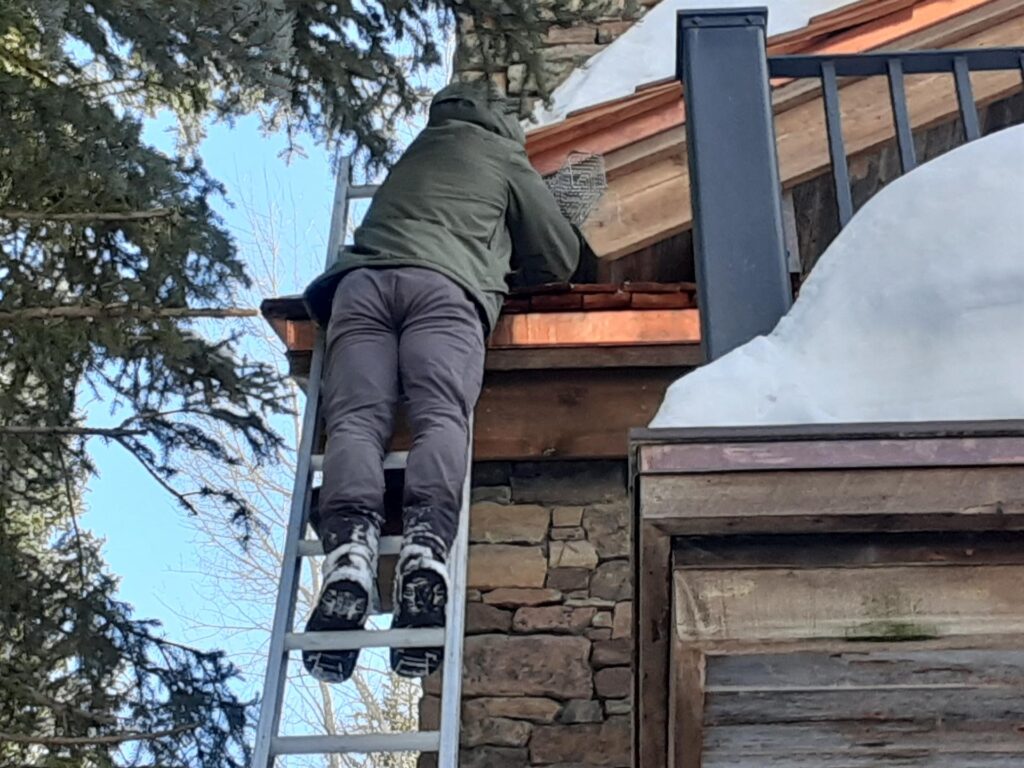
Why are squirrels attracted to my property?
Much like many other nuisance animals, squirrels are generally attracted to yards for a couple of reasons. The most obvious and serious is a food-related attraction. Whenever there are easy opportunities for squirrels to find food on your property, they will congregate quickly. If you have certain fruits, vegetables, flowers, or trees growing in your yard, squirrels might find some easy food sources. If you ever leave your garbage or any pet food left out unsecured, they may also be attracted to your property. In addition to the food sources, shelter is a big attractant for squirrels. Large trees that squirrels can nest in are attractive, as is a home or other building that has easy entrance points.
What problems can squirrels cause?
Squirrels can present serious problems on two fronts: disease and damage. Disease is very serious, as these rodents can spread many different serious illnesses to you, your family, and your pets. These diseases can be spread in a variety of ways. A squirrel can bite or scratch humans, and this is a very high chance of contracting an illness. In addition, exposure to an infected squirrel’s urine and feces can spread diseases as well. Finally, any hair, saliva, or even places squirrels brushed up against can spread diseases to humans and pets.
Squirrels might have serious health risks, but they also cause the potential for great amounts of damage to your home and property. One of the most serious problems squirrels cause is actually how they often gain access to buildings. Many times, squirrels cannot find an entrance into homes, so they just chew their way through any number of different building materials. This alone presents a problem, as more animals besides squirrels can get into these entry holes. Once in your home, squirrels chew on wires, creating the potential for fire hazards. They also love to make nests for their young, chewing and tearing up insulation and ruining its energy-saving value. Finally, squirrels can even begin to cause structural damage if they are left to their devices long enough, as they will chew up many important pieces of lumber and other building materials.
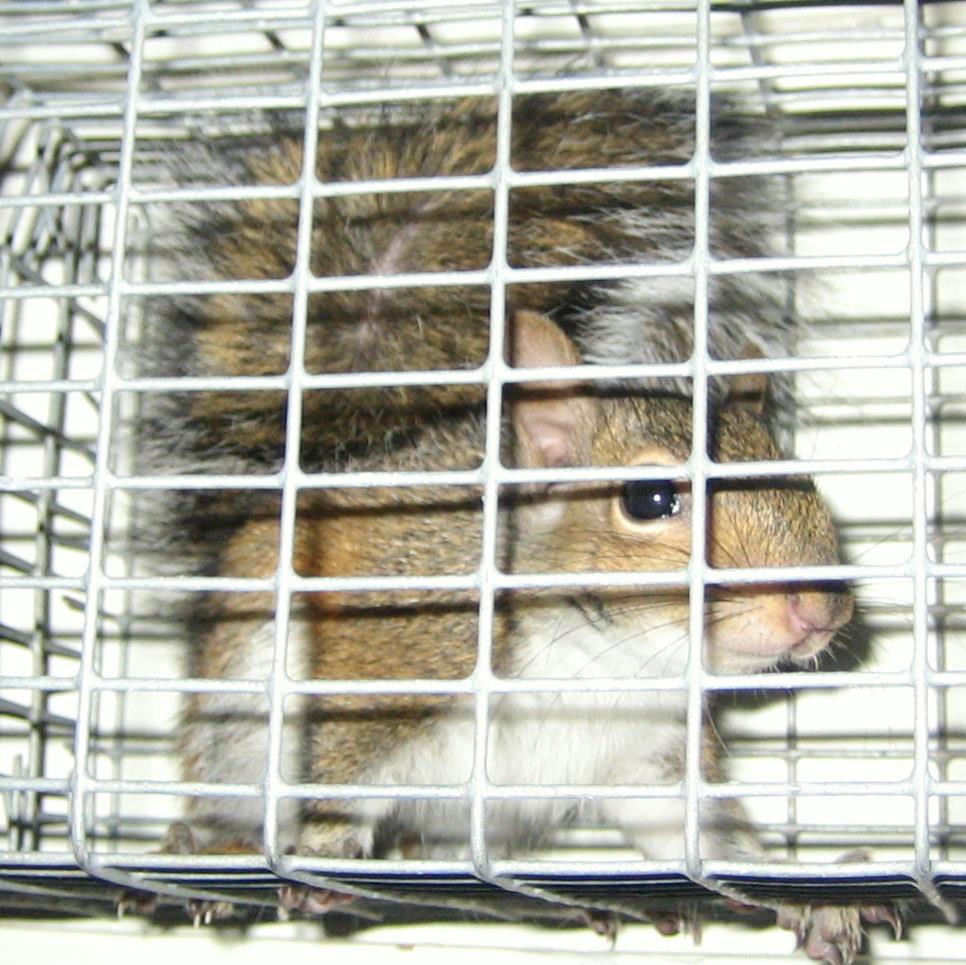
How can I prevent squirrels?
Preventing squirrels can be viewed from two main sides. The most important and effective way to prevent squirrels from getting into your home is to be sure your home is sealed up. To begin, first examine the exterior and interior of your home, paying special attention to all areas around the roofline of your home, as this is a common entry point. If you find any problem areas (gaps, cracks, or holes), be sure to seal them up in any way possible. Use an all-weather sealant, aluminum sheeting, or a variety of other impenetrable materials. Once this is done, you can turn your focus outwards to your property.
The second simple way to prevent squirrels is to make your yard less attractive to them. Begin by cleaning up any debris you have laying around. This means tall grass and weeds, woodpiles, and old leaves. Next, focus on food sources. Secure all pet food and garbage tightly so animals cannot access it. After this, you will want to be sure to keep all plants that squirrels find attractive, secured from animals, as this will prevent them from coming near your home.
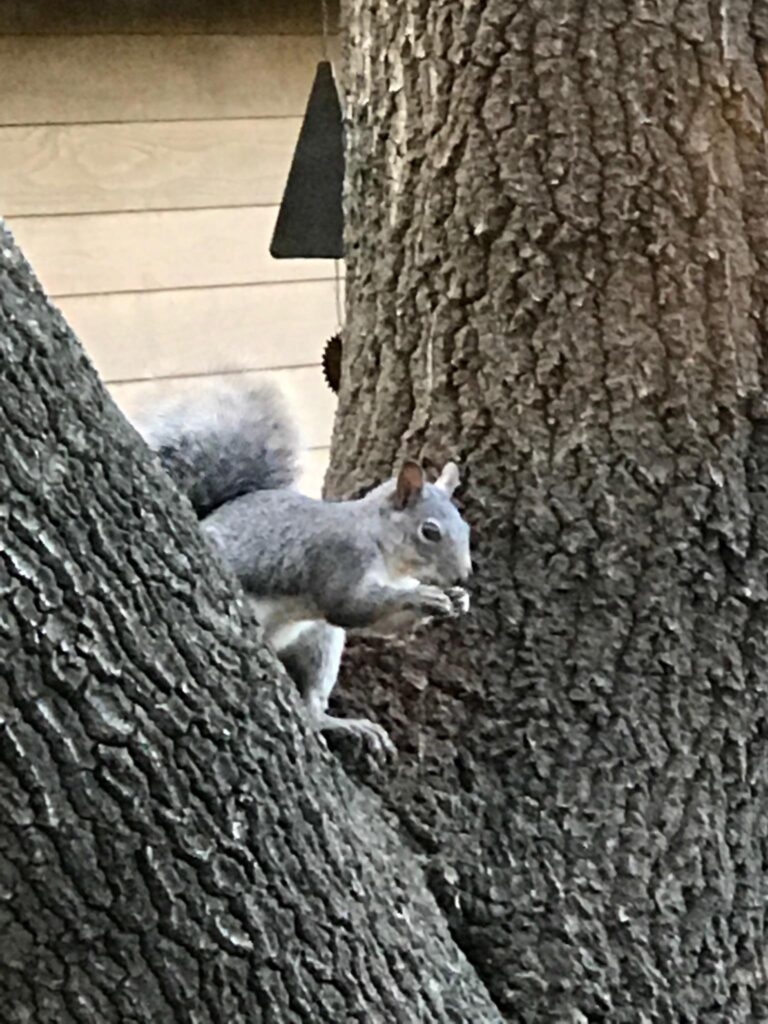
How do I remove squirrels?
Squirrel removal might sound like a pretty simple do-it-yourself job that should not take too much time to accomplish. This is hardly the case, as there are important things homeowners need to be aware of. When a squirrel gets into your home, often it is a mother squirrel looking for a warm place to raise her young. This presents quite a unique problem, as this means if you remove the mother squirrel by using a one-way door or a cage trap, the young will die slow, painful deaths and cause terrible odors throughout your house. This is why it is recommended to hire a professional wildlife removal service to take care of any squirrel problems you may be facing.
Why hire Complete Wildlife Removal?
Here at Complete Wildlife Removal, our experts are proud of their squirrel removal skills and experience. Based in Jackson Hole, Wyoming, we are proud to provide our clients with wildlife removal services, as well as animal exclusion, animal damage repair, cleaning, sanitation, and insulation installation services. There is no problem too big or too small for us, and we pride ourselves on our work ethic, customer service, and humane treatment of animals. If you are dealing with a pest control problem of any kind, be sure to give us a call here at Complete Wildlife Removal.
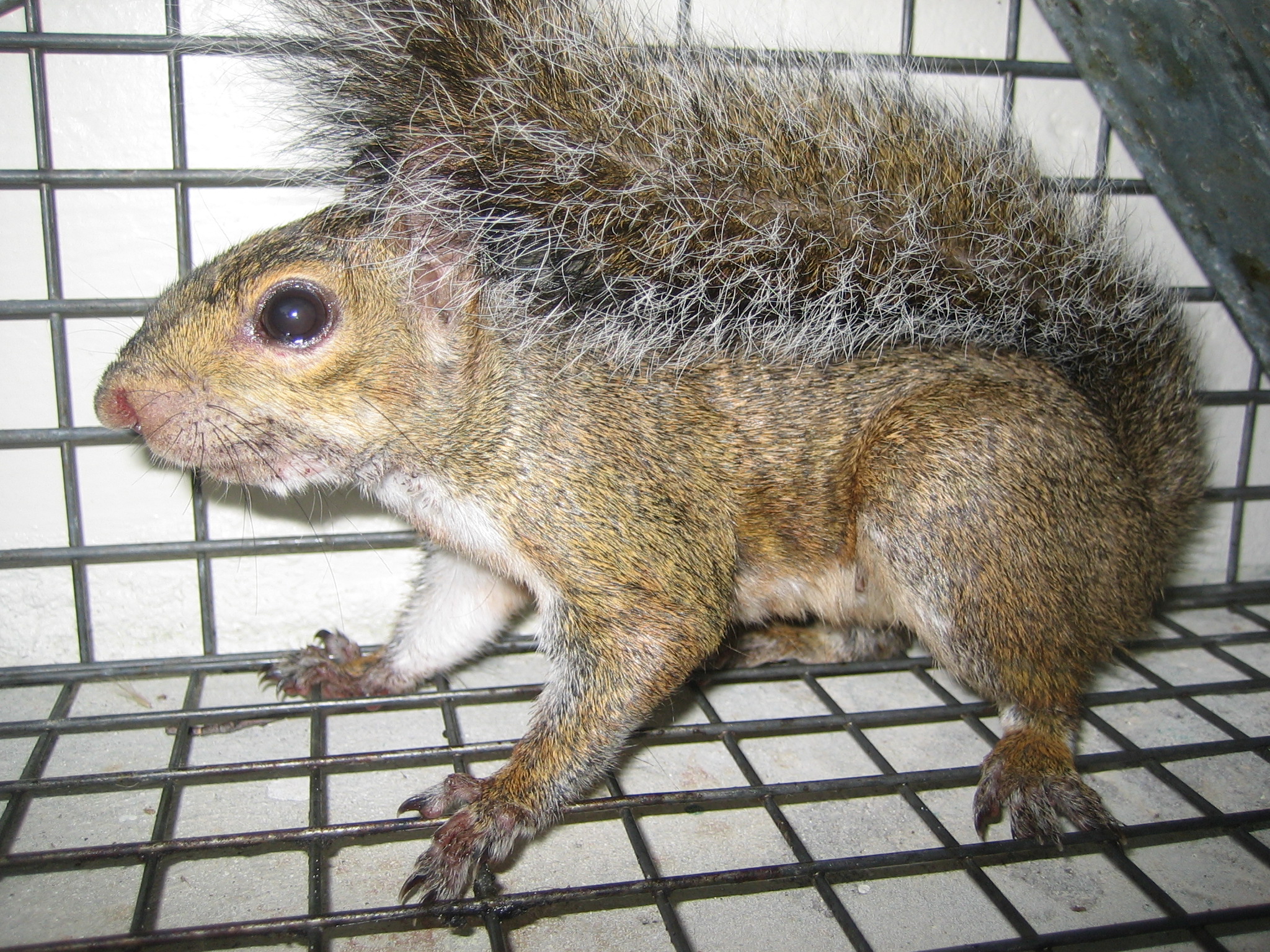
How To Remove Squirrels From a Chimney
Wildlife can find its way into your home in interesting ways. Sometimes their method is toward the top of your house and other times they may have found a way in through the bottom area of your house. Squirrels are agile creatures that you may see hanging out in your yard or trees fairly regularly. They are natural explorers so if there is a weak spot around your home for them to find a way into your space, they will discover it and use your home for warmth and shelter. Visit pestcontrolsquirrel.com to learn more about squirrel control.
Seeing squirrels around your home, in your yard, or your trees is not necessarily a tell-tale sign that you need to have professionals come and immediately remove them, but it can be beneficial to take some precautions to ensure they do not find their way on top of or into your home. Trees are the most straightforward method of transportation for these animals, so trimming them enough that the branches do not overhang parts of your house can help keep them from invading your space.
If squirrels find their way onto the roof of your home and you have a chimney, they might become curious. Squirrels love discovering trees and hollowed-out limbs or trunks. Your chimney, if it does not have a cap, might look like a different type of hollowed-out tree trunk to the squirrel. They may climb or fall to the bottom of the chimney. Depending on how your chimney is set up and how you have kept up with the structure of your chimney, it could find itself nearly in your living room. Some squirrels may not end up quite that low if you have compartments in the base of your chimney.
Depending on what the inside of your chimney is made up of, the squirrel may have a hard time finding its way back out. If the inside is made of mortar, they may be able to climb their way out, but many squirrels find this to be a difficult task. So, how exactly are you supposed to get a squirrel out of your chimney?
If the whole process is overwhelming to you straight away, you can always call a professional as soon as you find out the animal is there. Complete Wildlife Removal can come to help you through the process. If you are willing to try a couple of simple tasks before you call a wildlife expert, here are a few methods you can give a shot.
Knotted Rope
If you can get your hands on a thick, notched rope, you can drop the end of the rope down into your chimney. The squirrel could potentially use the rope as a way to climb back up and out. They will need to leave the chimney at some point to gain access to food and water, so this rope can help them do so if they have been stuck. Be sure to install a cap on your chimney after they have found their way out.
Traps
This is usually recommended with the help of a wildlife removal expert, especially because if the squirrel is stuck at the bottom, placing a trap at the top will not necessarily ensure that they can climb their way out. If the squirrels are in the compartment of your fireplace that leads to the main part of your home, you can set a trap there to see if they take the bait. Some individuals will block off a part of their home that leads to an exit door and let the squirrel out of the fireplace. Blocking off a path can help make sure they do not find their way into other parts of your home. It should be noted that this method should be done with caution, if at all, as animals can carry diseases and bacteria.
Squirrels are tiny animals and finding their way out of a slippery chimney can be difficult. If you have attempted to give them an escape route out and they haven’t been able to make it, a professional wildlife company can help you out. Complete Wildlife Removal can help those squirrels find their way out of your home and discover a home of their own.
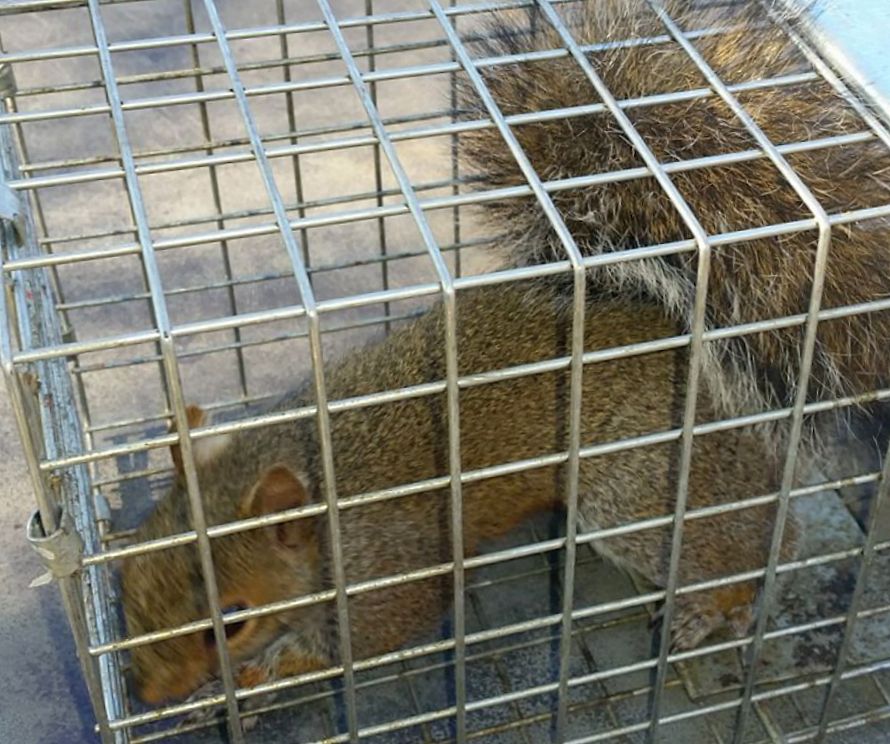
How to keep squirrels away from your garden?
Squirrels are small tree-dwelling rodents with bushy tails. Most people think squirrels are adorable and look like those funny Disney characters. However, there are others who find them annoying and a pest that invades their gardens.
If you have a garden, and you want to prevent these little invaders from destroying your garden, here are some recommendations to keep these little rodents away:
Let ‘s get started!
- Know your adversary.
Something you should know about these colorful little animals is that they have a simple plan every year: to hoard as much food as possible in order to face the winter with enough food. Therefore, they will work tirelessly to get their food.
Their favorite foods are bulbs, seedlings, flowers, and leaves of some plants. For that reason, gardens and orchards are often victims of attacks by these cute little animals. If you want to keep squirrels away from your garden, here are some recommendations:
- Grated soap.
It is a simple solution that will not cause any harm to these animals. It consists of grating a soap bar and spreading the grated soap on the borders of your garden, or you can also place it around the plants in your garden. This is an economical, easy and practical proposal.
- Sound wave repellents
A slightly more expensive solution is to place sound wave rodent repellents, which consist of a central unit with speakers that produce sounds similar to those of their natural predators.
Others emit sonic and ultrasonic waves imperceptible to the human ear, thus avoiding noises that could bother your family, but create an unbearable environment for the squirrels that are immediately chased away, keeping your garden free of these visitors.
- Natural predators
Having a dog or cat as a pet and releasing it in the garden could be a solution to scare away these invaders. As they are natural enemies, the survival instinct of squirrels will make them flee for their safety.
You can also place cat or dog hairs in different points of the garden, and they will also scare these rodents away with the smell emitted by the hairs.
- Metal or plastic rings
If you have trees in your garden and you want to prevent these animals from climbing on them, place a metal or plastic ring around the trees. The smooth surface will prevent the squirrels from climbing on the trees.
- A more drastic solution
In addition to the aforementioned recommendations, you can have a more drastic solution, such as using poison. in this way, you will be sure to have eliminated these rodents from your garden. Among the most commonly used poisons for the extermination of squirrels, there are:
- Strychnine.
- Zinc phosphite.
- Chlorophacinone or RoZol.
It is important to place the poison inside the burrow to avoid another animal being affected by consuming the poison
- Mothballs
This is another possible solution to scare squirrels away from your garden. These balls have an unpleasant odor for these rodents, so they will seek to flee away from this smell. However, this method is perhaps not the best one since it could have a negative impact; placing these balls in large quantities can cause side effects for humans.
- Avoid leaving food leftovers
If you have birds, the food you place on them can become a magnet that will attract these rodents, so you should avoid placing food or leftover bird food within their reach.
These apparently defenseless and tender animals can become a pest that can do a lot of damage to your garden, because they will not only eat its flowers, leaves, and fruits, but they will also make burrows and tunnels that will damage its aesthetic image.
When you want to chase away or avoid these animals, it is also important to take into account that there are some state laws that protect them or consider it illegal to destroy their nests, so be careful.
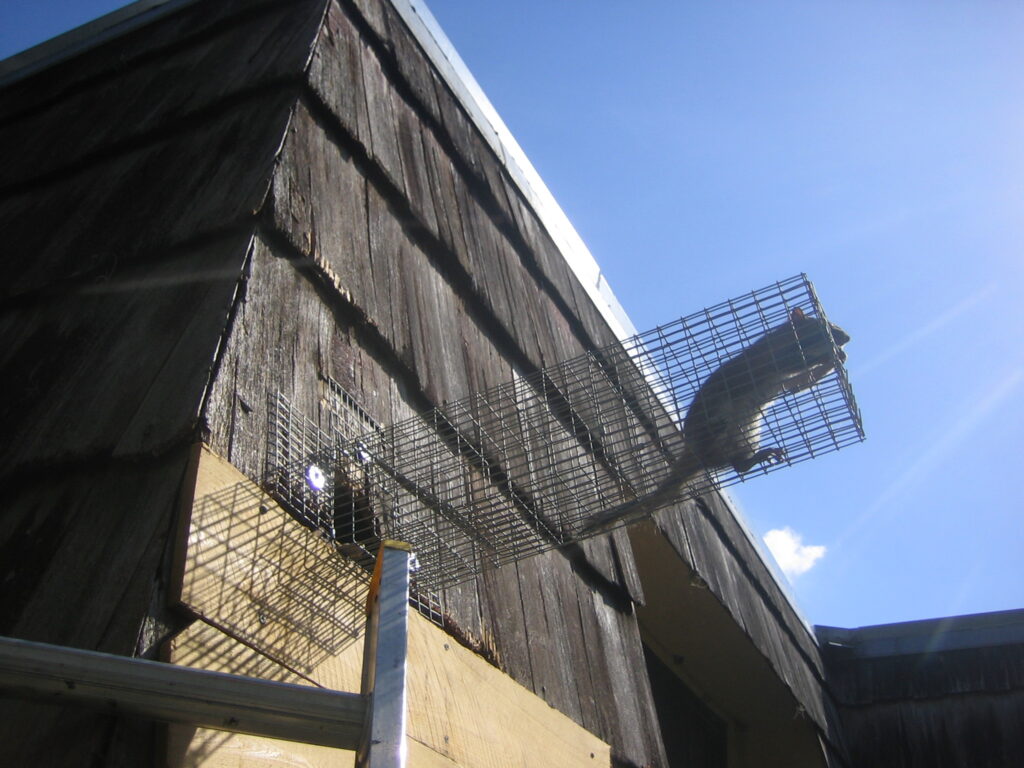
How to Get Squirrels Out Of a Wall?
Do you have squirrels in the walls? Squirrels are less likely than rats to become trapped inside walls. However, If they’re in the walls, they most likely came in through the attic or crawl space, so they’ll come and exit the same way. If squirrels make their way into your home’s walls, the scratching and gnawing noises they make might be much more unpleasant. They will scamper around with their little feet, making a lot of noise, and they will also leave plenty of droppings.
How can you tell if it’s a squirrel in your walls?
If you suspect you have rodents in the wall, is there any way to tell if it’s a rat or a squirrel? Yes, in fact. It’s actually quite simple to do. Squirrels and rats are both rodents belonging to the Rodent family, yet their behavior, droppings, tracks, and nests are very different. It’s also useful to keep in mind that rats and squirrels are rivals. In general, a large squirrel population equals a small rat population. So, here are two easy techniques to figure out whether you have squirrels in your home.
When trying to differentiate between squirrels and rats, the first thing to look for is their droppings. The distinction in their feces is one of the biggest clues. Squirrel droppings are often brown or reddish, but rat droppings are typically dark or black. Rat droppings are more oblong with pointed edges, while squirrel droppings are barrel-shaped with rounded sides.
Another clue is their nests.
Squirrel nests are typically large and untidy. And they use twigs, bark, grass, leaves, vines, moss, shredded insulation, paper, and other materials to make their nests. On the other hand, rats and mice prefer burrows to nests. Rat burrows typically have smooth, rounded entrances. The distinctions are usually very hard to miss, even to the untrained eyes.
Removing squirrels from your walls
Finding a good business that uses humane animal control methods to evict squirrels is the best option for squirrel removal. Squirrels can get hostile and bite if confronted, so never try to handle them yourself. Experts have the equipment and technical expertise to remove squirrels in a humane and safe manner. Squirrels can be removed from your property using live traps, and the squirrels can then be relocated by a wildlife removal professional.
Temporarily installing a one-way exclusion door over the entry point is another option for excluding squirrels from your walls. Because one-way exclusion doors only open one way, so once the squirrel exits to go search for food, it will be unable to return. A one-way door is the simplest and most humane solution for removing squirrels in a wall. Exclusion doors come in a variety of sizes and usually have flaps on the outside, usually a rectangular box with a slanted “door.”
When you install a one-way door on the entry hole, the squirrels will push it up and out of the way as they leave the walls. However, when they return and try to re-enter, they’ll be standing on the door and will be unable to open it. So, a one-way door essentially locks the squirrels out of the walls.
Preventing future squirrel infestation
Getting rid of the squirrels in your walls will not keep future squirrels out. You have to take precautions to keep squirrels off your roof to prevent future infestations.
Seal off all access points, and cut back overgrown tree branches and ensure that they are no less than 6 to 10 feet from your roof line, this will ensure that squirrels don’t jump from the branches to your roof. If you can effectively keep squirrels off your roof, you will keep them away from your walls.

